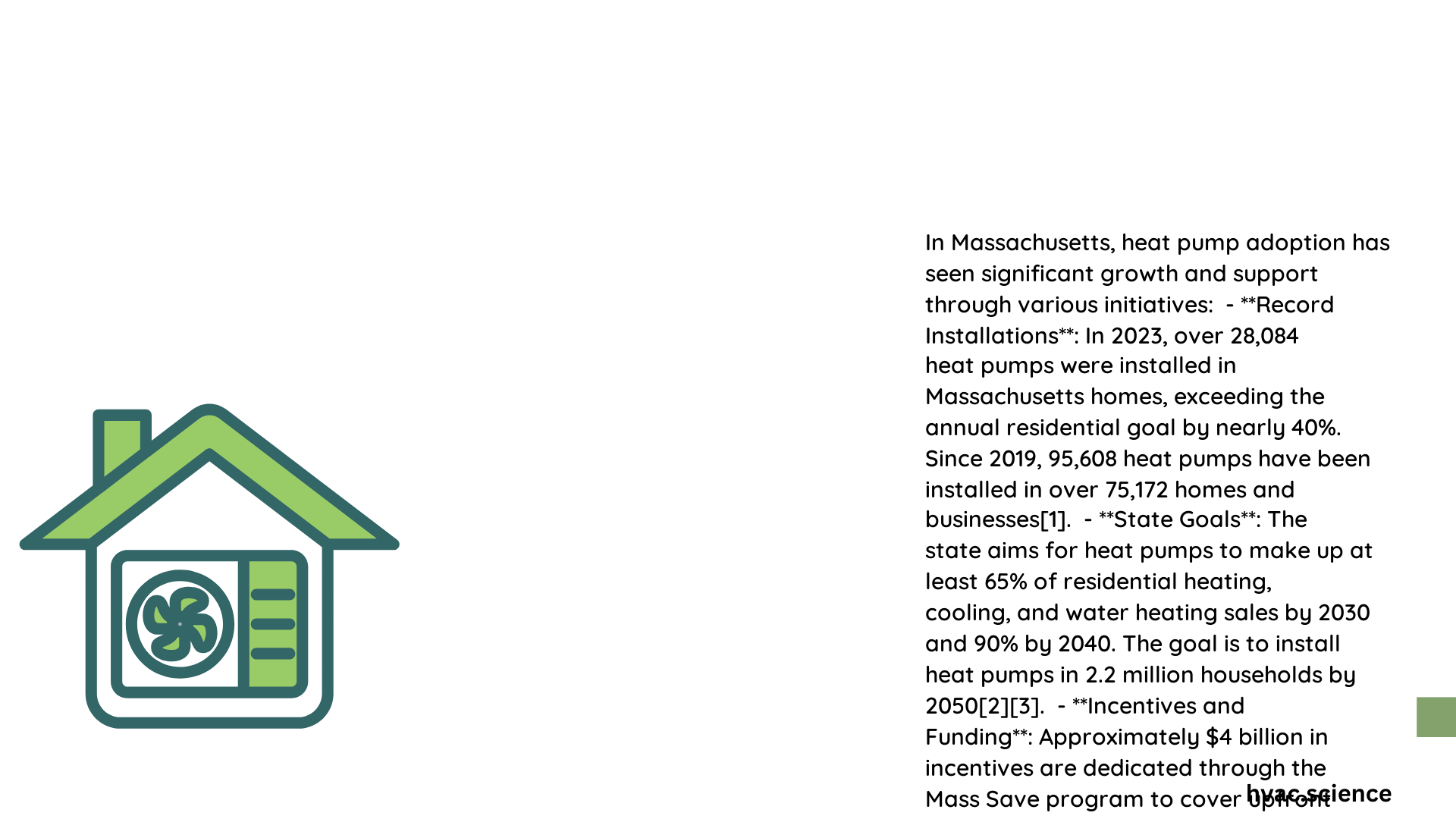Massachusetts is transforming residential heating through aggressive heat pump adoption strategies, targeting 65% residential heat pump coverage by 2030 and 90% by 2040. Homeowners are experiencing significant financial and environmental benefits through state-sponsored programs, innovative incentives, and technological advancements in heat pump systems.
What Drives Heat Pump Adoption in Massachusetts?
Why Are Massachusetts Residents Switching to Heat Pumps?
Massachusetts residents are increasingly adopting heat pumps due to several compelling factors:
- Environmental Sustainability
- Reduces carbon emissions
- Supports state’s decarbonization goals
-
Aligns with climate change mitigation efforts
-
Economic Incentives
- Substantial rebates through Mass Save program
- Potential energy cost savings
-
Increased home value
-
Technological Advancement
- Improved efficiency ratings
- Better performance in diverse climate conditions
- Enhanced comfort and temperature control
How Much Do Heat Pumps Cost in Massachusetts?
| Heat Pump Type | Average Installation Cost | Potential Annual Savings |
|---|---|---|
| Air-Source | $15,000 – $30,000 | $1,500 – $2,900 |
| Ground-Source | $30,000 – $60,000 | $2,000 – $3,500 |
What Incentives Exist for Heat Pump Installation?
The Mass Save program offers significant financial support:
- Income-Qualified Homeowners
- Up to $16,000 in rebates
- Comprehensive installation support
-
Reduced upfront costs
-
Standard Homeowners
- Up to $10,000 in heat pump equipment rebates
- Flexible financing options
- Performance-based incentives
What Are the Energy Efficiency Considerations?
Heat pump efficiency in Massachusetts is measured through:
- SEER Rating (Seasonal Energy Efficiency Ratio)
- Ideal range: 18-22
-
Higher ratings indicate better cooling performance
-
HSPF Rating (Heating Seasonal Performance Factor)
- Recommended range: 9-12
- Indicates heating efficiency during colder months
What Installation Challenges Might Homeowners Face?
Potential challenges include:
- Electrical system upgrades
- Potential ductwork modifications
- Initial high installation costs
- Selecting appropriate system size
How Does Climate Impact Heat Pump Performance?
Massachusetts’ varied climate presents unique considerations:
- Cold-climate heat pumps designed for temperatures down to -15°F
- Enhanced technology reduces efficiency concerns
- Supplemental heating might be necessary during extreme cold
Key Takeaways for Massachusetts Homeowners

- Prioritize high-efficiency heat pump models
- Leverage Mass Save incentives
- Consider long-term energy savings
- Consult professional energy assessors
